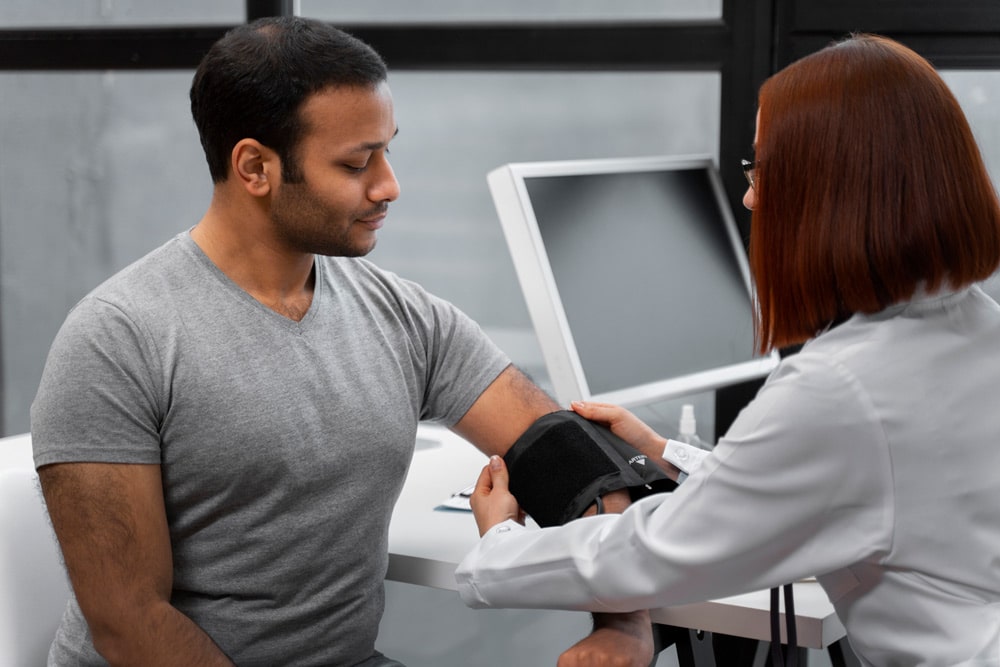
Dravidians - Ancestral Origins
In the southern regions of India, there are populations in the
Our experts publish articles related to the exciting world of
of genetics so that you can learn and train.
Categories

In the southern regions of India, there are populations in the

Well known are the pyramids of Egypt, which are still being

Did you know that approximately 66% of the variance in the

When the Spaniards arrived in the Americas at the end of the 20th century, the

Amazon According to an ecology study in 2021, only

Geographically, the Scandinavian peninsula is located north of the

The Sardinian ethnic group is native to the Mediterranean island of Italy.

Northwestern Europe comprises a group of nearby countries

We would like to dedicate this small space to thank you for

Throughout history, different postulates have been put forward for

When you have a double pregnancy, there are two possible outcomes

Importance of vitamin A Vitamins belong to a group of vitamins that are

There are a number of genes involved in metabolic pathways that influence the

Breast cancer is the most important neoplasm in the world.

When we hear about metabolism, we automatically tend to think of metabolic issues

The human genome is our genetic information taken in its entirety.

Currently, the technology known as next-generation mass sequencing,

Although on the outside we may look very different from each other, what we are not is the same.

THE RESULTS OF GENETIC COMPOSITION IN A GLOBAL CONTEXT

Genomic medicine is the discipline that studies the changes in

Genetic predisposition (sometimes also referred to as genetic susceptibility)

The field of genetics is a field that has been

In the past, the upper classes, especially the kings, married each other.

We often blame the companies that we have been working with on the

As we know, genes contain the information for manufacturing

The term "sleep" refers to both the act of sleeping and the act of

The position of the heart in the human body has always

Let's take a closer look at one of the characteristics we studied.

SNPedia is a wiki on genetic variations. It contains information about

DNA is one of the most intriguing molecules that we have ever seen.

DNA is one of the most intriguing molecules that we have ever seen.

In this post you will discover if emotions are inherited, and what are the genes on which happiness depends.

In the last ten years, there has been a notable increase in the number of

Surely throughout your life someone has told you that you are unique and the truth, I could not be more right. Our DNA plays that role, the role of making us unique, because, although the vast majority of DNA "letters" are the same between different people (99.9% of coincidence)

Haplogroups are an important section within the ancestry report, to get an idea of what they are, we can imagine them as the branches of the Homo sapiens family tree, so that each haplogroup includes people with similar genetic profiles who share a common ancestor.

As you already know, DNA influences many aspects of our body, including health. At ADNTRO we analyze thousands of markers for more than 100 diseases belonging to different body systems or devices.

Our ancestry algorithm uses only the information from your

One of the blocks that we have recently added to our

These point variations are changes in a nucleotide (one of the four types that make up DNA: A, T, C and G). These variations in a single nucleotide are what we call SNPs (Single Nucleotide Polymorphism) or polymorphisms.

At ANDTRO, the first step to begin your journey through your DNA is to take a saliva sample that we send to Eurofins Lab in Denmark for analysis. The laboratory, one of the largest genotyping centers in Europe, analyzes the sample and offers us the data that we process in ADNTRO to be able to offer you all the content that you will see in the demo of our website.

You will undoubtedly already know that the SARS-coV-2 coronavirus, which causes the Covid-19 disease, has been a before and after for the recent history of humanity. Hundreds of thousands of people have died worldwide from this pathogen that has represented the largest global health emergency to date. However, surely you also know cases of people who have tested positive for Covid-19 and have barely had a slight cold or have not even had a single symptom. How is this possible? Why is it so lethal for some and for others just a cold?

"Blueprint" is the title of Robert Plomin's controversial book.

Thanks to the study of your DNA that we do in ADNTRO, you will be able to know what type of foods are best for you, for which diseases you have a high genetic predisposition or if your muscles recover after exercising more or less quickly than the population average. But how should I take these results? Does this mean that I am sentenced by my own genetics?

ADNTRO would like to share this article published by Nebula Genetics.
For digestive clinics or physicians. Provides information on the genetic predisposition to develop diseases of the digestive system- such as Chron's, Inflammatory Bowel Disease among many others - as well as intolerances. This supports a possible early diagnosis and prevention. The results of this study are very positive, allowing for more precise and personalized interventions to improve the quality of life of the patients.

The applicability and importance of the PRSs in cardio is endorsed by the American Heart Association (AHA). The applicability of PRS is made possible thanks to this tool that helps in the cardiovascular disease prevention: identifying patients with a higher genetic risk of developing conditions such as diabetes, thromboembolism, hypercholesterolemia, and coronary artery disease (CAD), among others, enabling early interventions and preventive measures to improve patients' cardiovascular health.

Access and consultation of genetic data relevant to health and pharmacology. Thanks to this tool, it is possible to know the predisposition of patients to suffer adverse effects and what dose adjustments are necessary for more than 150 drugs, thus improving safety, efficacy and treatment personalization. This information is backed by Stanford University and approved by the FDA and gives solutions for biobanks, and research organizations.

Specialized for dermatological clinics, this service provides information on dermatogenomics: skin sensitivities, efficacy of various topical and oral treatments, essential vitamins and minerals for skin health, dermatological conditions, skin types and more data to help you customize your skin care recommendations.

Genetic analysis allows for the design of personalized training programs that, taking into account genetic characteristics focused on the world of sports, such as muscle fiber types and predisposition to injuries, maximize performance and reduce the risk of injuries. Additionally, by considering genetic factors related to sleep and longevity, recommendations can be offered for a healthy and sustainable lifestyle.

The practical application of nutrigenomics allows you to differentiate yourself from the competition by offering your patients personalized and accurate information on genetic predispositions to food intolerances.The results of this approach allow the design of dietary plans completely adapted to the genetic profile of the patient. This approach makes it possible to design dietary plans completely adapted to the individual needs maximizing results and providing an exceptional and differentiated service in the field of nutrition.

Very useful for psychiatric clinics and psychological clinics. Provides information on the genetic predisposition to develop nervous system diseases and mental disorders, such as Alzheimer's, Parkinson's, schizophrenia, bipolar disorder and OCD, among others. This supports a possible early diagnosis and prevention of these conditions, allowing for more precise and personalized interventions for improve the quality of life of patients.


Kind regards from ADNTRO team